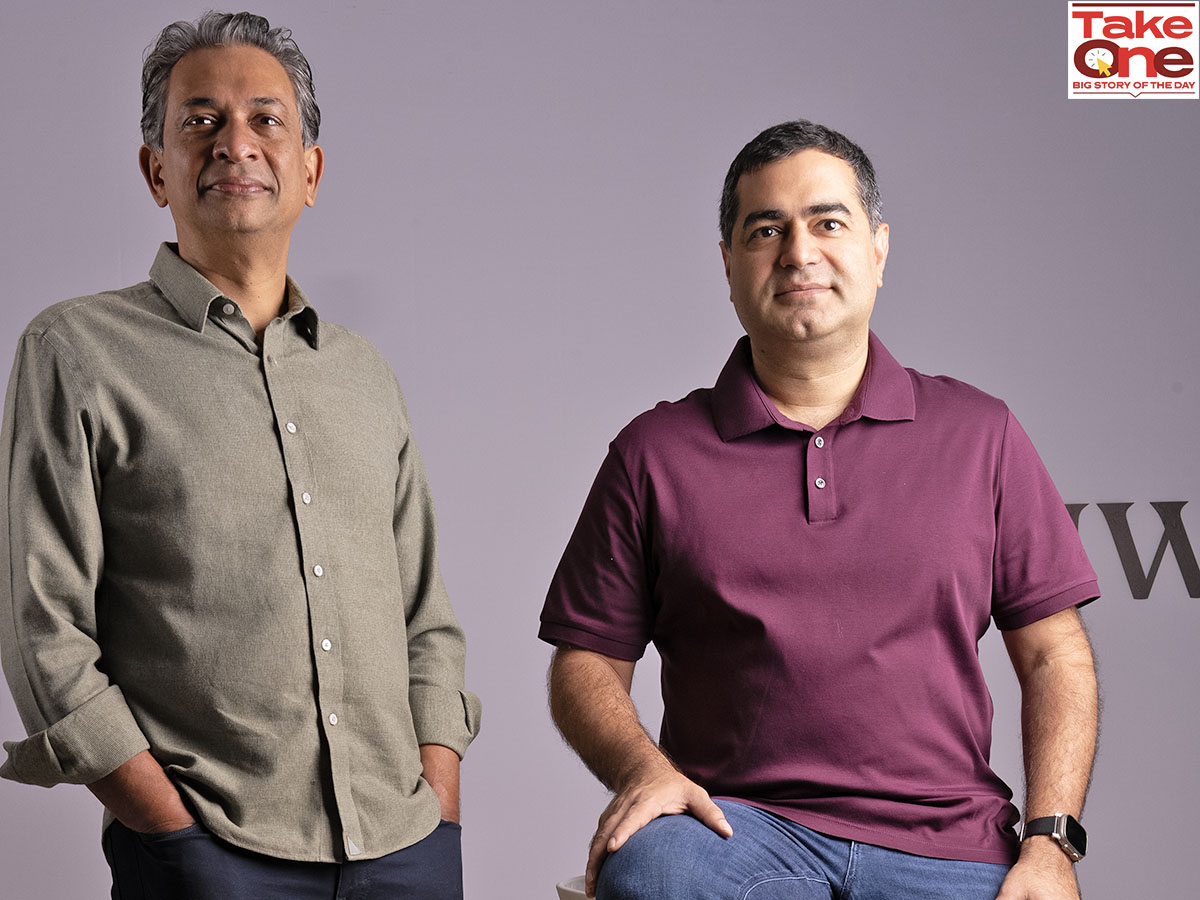Peak XV sees Surge programme going more global, reveals cohort 10
Startups including a protein bread maker, a home loan specialist and an operating system provider for sales, are among the 14 selected
 (L to R) Rajan Anandan and Shailendra Singh Managing directors of Peak XV Partners at Bangalore.
Image: Selvaprakash Lakshmanan for Forbes India
(L to R) Rajan Anandan and Shailendra Singh Managing directors of Peak XV Partners at Bangalore.
Image: Selvaprakash Lakshmanan for Forbes India
Peak XV Partners today revealed what it said is the most diverse cohort yet of its Surge programme, which seeks to help selected early-stage startups scale up rapidly. The Singapore-to-Bengaluru venture capital (VC) firm, formerly the India and Southeast Asia unit of America’s Sequoia Capital, has picked 14 ventures from Mumbai to Manila, Delhi to Dover and Singapore to Sydney.
Bengaluru, of course, figures prominently as home to several of the startups selected from India. Others come from China, UAE, a first for Surge, and the UK. Their work ranges from baking protein-enriched and maida-free bread, to making home loans transparent, to a software platform that helps developers do better. Then there are the evergreen areas of tech for financial services and enterprise sales.
“We want a bunch of companies that are going to be global market leaders; definitely India market leaders,” says Rajan Anandan, managing director at Peak XV and Surge, in an interview with Forbes India. Startups that have graduated from Surge include both kinds of companies, he adds.
In Surge 10, Amaani, founded by Shubham Poddar, is building beauty and wellness brands from the UAE. Ambak, started by Raghuveer Malik, Rameshwar Gupta and Rashi Garg, in Bengaluru, aims to bring transparency, efficiency, and security to both customers and home loan distributors in India.
At Auquan, sibling founders Chandini and Shubh Jain, in Chicago, are artificial intelligence (AI) innovators automating various workflows in financial services. Kevin (Tiange) Ling, founder of Dubbing.ai, in Singapore, offers software for audience engagement through immersive role-playing and accent changing in real time.


















